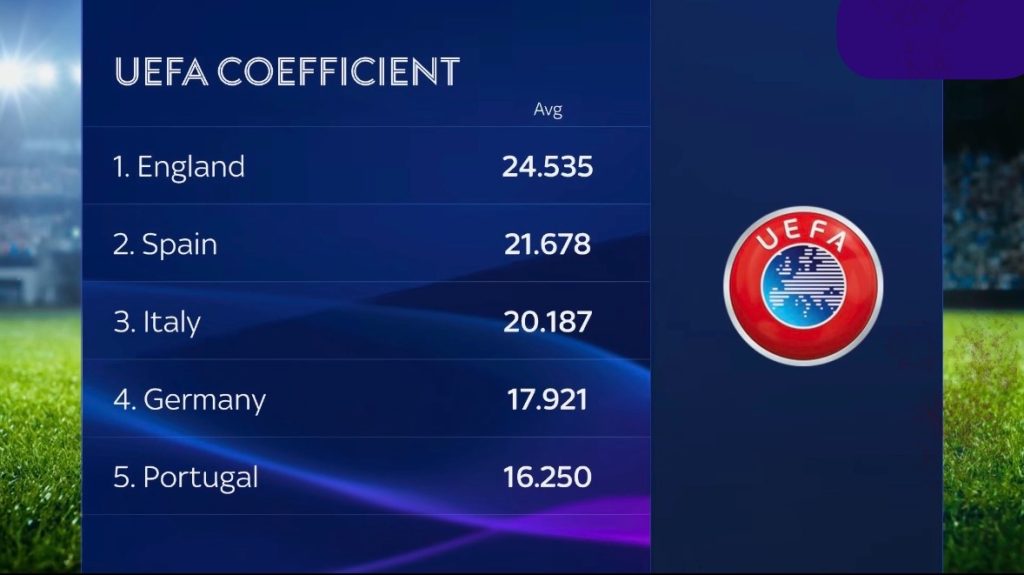England is officially guaranteed at least five clubs in the 2025–26 UEFA Champions League, thanks to Arsenal’s recent first-leg victory over Real Madrid in the quarter-finals. That win has helped solidify the Premier League’s place among UEFA’s top-performing leagues, unlocking an extra Champions League berth through UEFA’s coefficient ranking system.
How Did England Earn the Extra Spot?
Each season, UEFA awards two additional Champions League places to the leagues that perform best across its three major men’s competitions: the Champions League, Europa League, and Conference League. This performance is calculated using the UEFA coefficient system. Every win earns two points, every draw one, and bonus points are awarded for teams progressing in the Champions League.
The total points earned by all clubs from a given country are then divided by the number of teams that league has in European competition. For example, if seven English clubs collectively earn 100 points, their average (coefficient) would be 14.28.
This season, England and Italy are leading the coefficient table, meaning both countries receive an additional Champions League spot next season. For the Premier League, that extra place will go to the team finishing fifth – adding to the usual top-four qualification slots.
Who Could Take Those Spots?
Liverpool and Arsenal are firmly positioned in the Premier League’s top four, and the battle for third to tenth is incredibly tight. Clubs like Manchester City, Aston Villa, Newcastle, Chelsea, and even Bournemouth are still in the hunt, separated by just 12 points.
Could England Have Seven Champions League Teams?
Yes – and here’s how. Under the revamped Champions League rules, the previous five-club cap for any single country has been removed. That means English teams can secure extra places by winning UEFA competitions, regardless of their domestic league position.
If Aston Villa win the Champions League this season but finish outside the top five in the Premier League, they’ll still qualify – giving England a sixth team. Add to that the Europa League: if Manchester United or Tottenham, both currently outside the top five, win the tournament, they’ll also earn a spot in next year’s Champions League.
In this scenario, England could have a record-breaking seven teams competing in Europe’s top club competition next season.
A European Power Shift?
Italy currently sits second in the coefficient rankings, with Spain and Germany trailing behind. Bologna and Borussia Dortmund have already secured extra Champions League spots for next season by finishing fifth in Serie A and the Bundesliga respectively.
With new formats, increased spots, and intensified competition, UEFA’s evolving structure continues to reward domestic leagues that perform consistently well on the European stage – and this year, the Premier League is reaping the benefits.





